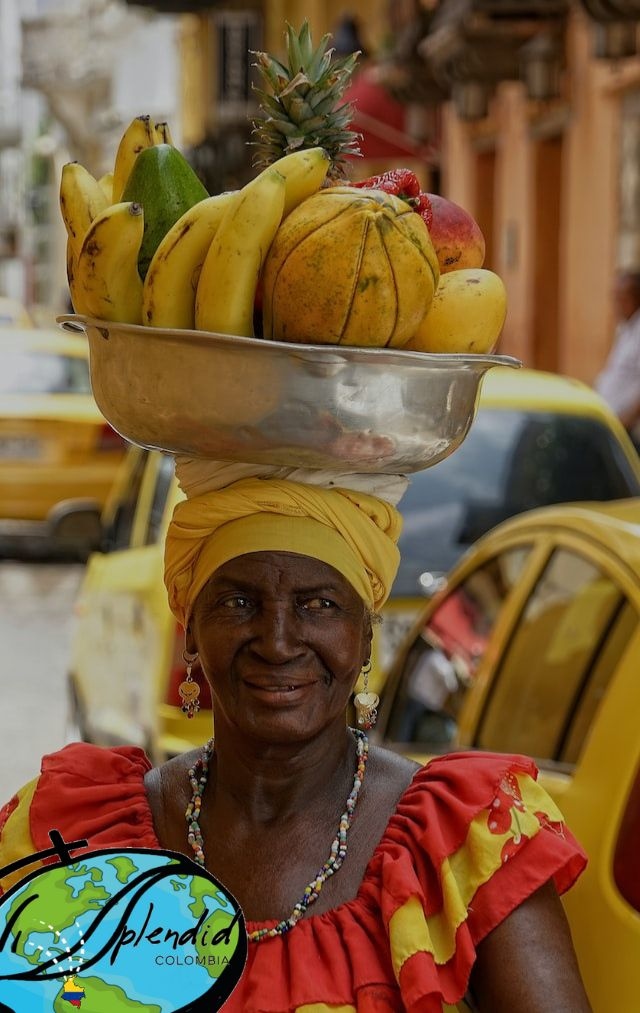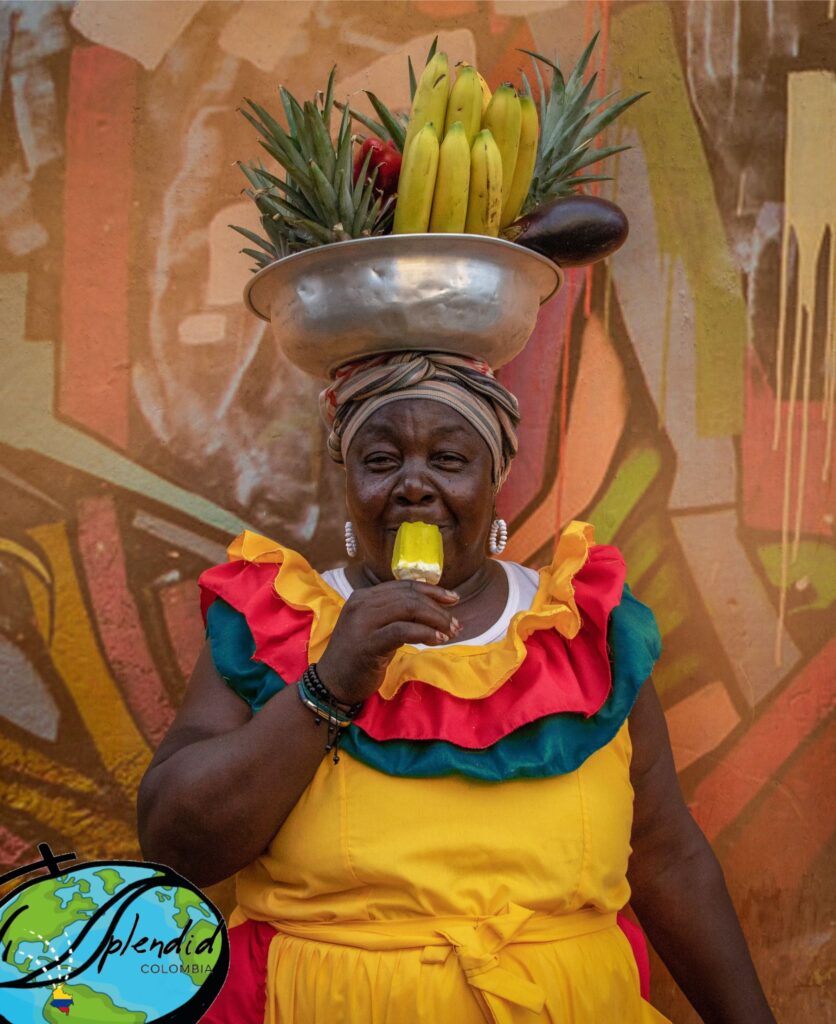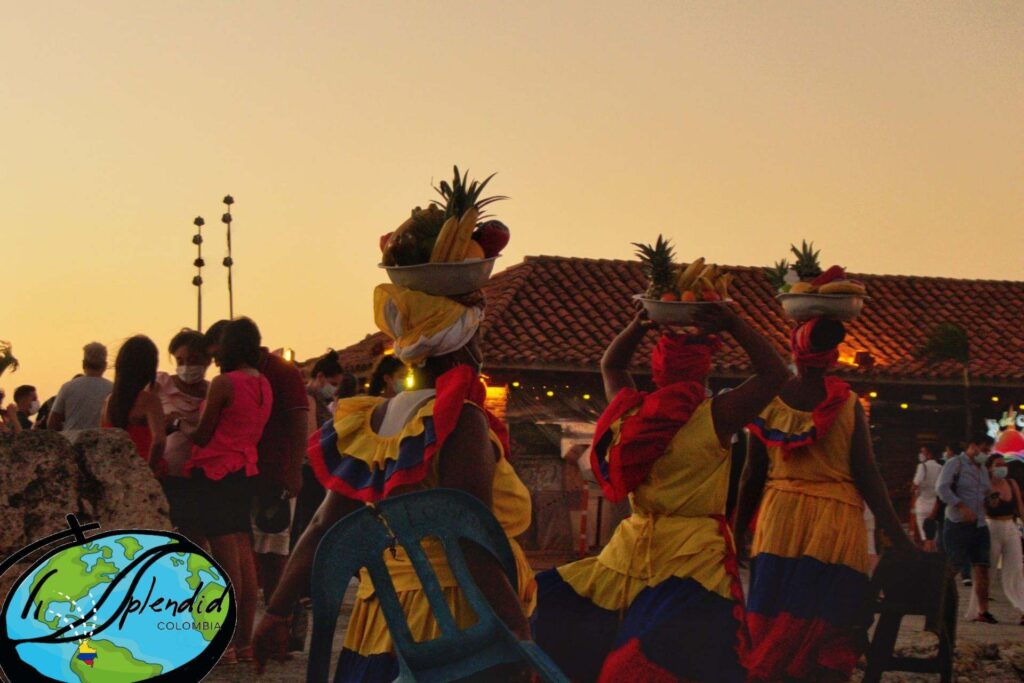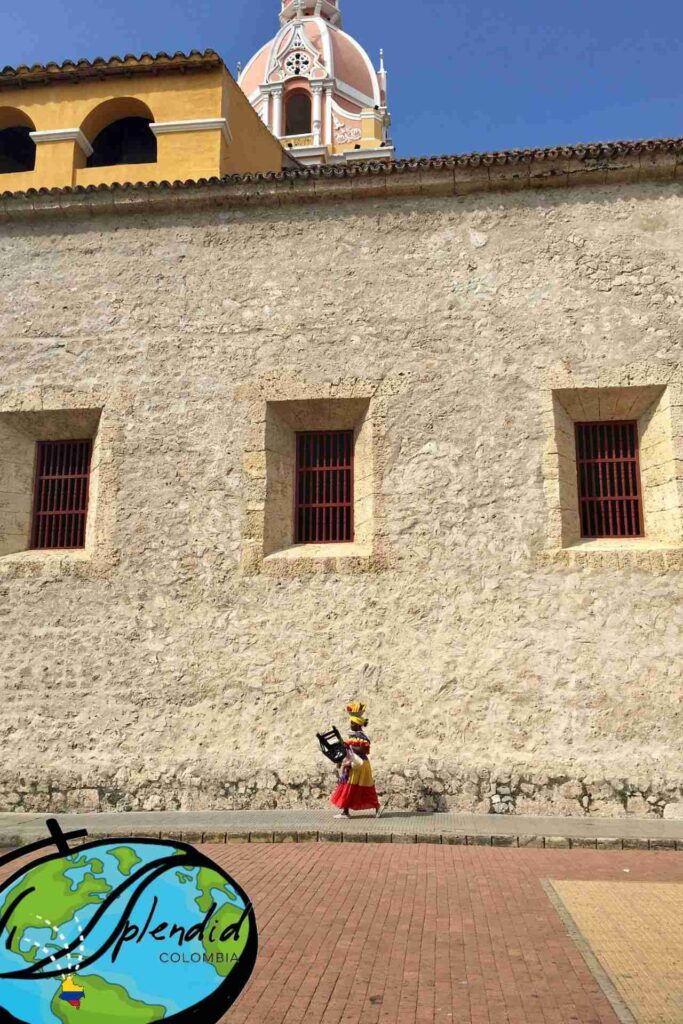In the streets of Cartagena
These kind of women – Palenqueras- are the descendants of African prisoners brought to Colombia, they safeguard customs of a small Africa in the Caribbean, their hometown San Basilio de Palenque was the first slave-free town in America.
The presence of Palenqueras is part of the history of Colombia, which has in the legacy of African culture a basis in the reality of the society, especially in the streets of Cartagena de Indias, where these women are an attraction for international tourists and even for visitors to the country.

San Basilio de Palenque
Originally from the village of San Basilio de Palenque, Bolivar, the “Palenqueras de Cartagena” are those beautiful women who roam the vast stretches of land of the Colombian Caribbean, with their huge smiles, dressed in rainbows and a menu of the most exotic fruits characteristic of the land.
They proudly carry their African roots in their blood and delight passersby with an exquisite mixture of flavors, tastes and colors, represented in fruits such as mangos, bananas, watermelons, pineapples and papayas that they carry on their heads. With their colorful dresses and penetrating gaze, they inspire locals and strangers alike who quickly identify them by their friendliness, freshness and joy typical of the Afro-Colombian culture. They are known as “Palenqueras”. Beautiful brunettes that surely those who have crossed the walls of Cartagena will remember.

They are descendants of slaves. Like all the black population of America, the Palenqueras of Cartagena are also heirs of slavery, heirs of maroon slaves, that is, captives who by dint of struggle and tenacity won their freedom by escaping to faraway places.
These Africans and their children, were gaining mountainous, remote and difficult to access places. Protected by geography and their thirst for freedom, these men and women created the “Palenques”. “Fortresses where they could maintain their customs, traditions and above all: to be free”. They come from the first slave-free town in America: “San Basilio de Palenque”, which is located near Cartagena, only 50 km away in the municipality of Mahates, in the department of Bolivar. Some of these women, travel daily to offer their products or have migrated to the outskirts of the tourist city. Every morning very early they cross the wall and throughout the day they sell a variety of fruit dishes and take pictures with hundreds of tourists. Don’t forget to give them at least two thousand pesos for the photo. By far they deserve it!

Palenqueros, descendants of the anti-colonial insurgency
The traditional houses of San Basilio de Palenque are made of bareque walls and a conical roof made of palm; they have a patio, a solar and a palisade.
Generally, the kitchen consists of a rancho with a roof, located in the backyard of the house, in which there is a stove with firewood for cooking food.
Visibility and inclusion
San Basilio de Palenque has had a progressive process of visibility, due to anthropological and historical research by Escalante (1954); Arrazola (1970); Arocha & Friedemann (1986) and Friedemann (1979) (Ministry of Culture, 2010). It was also declared a Masterpiece of the Oral and Intangible Heritage of Humanity in 2005, which generated contacts with national and international researchers and has attracted tourists from different regions.
History
San Basilio de Palenque was founded by Benkos Bioho, leader of the Maroon movement in the Caribbean. His figure is constantly referred to in the oral accounts of the Palenquera culture, and in his identity references as the man who guided his ancestors to autonomy and freedom by leading them to the swampy lands of the Montes de María.

These women in the streets of Cartagena de Indias have become a cultural reference in the country.
Palenqueras proud of their race, color, language and culture.
Splendid Colombia
We gladly invite you to check other interesting news:
